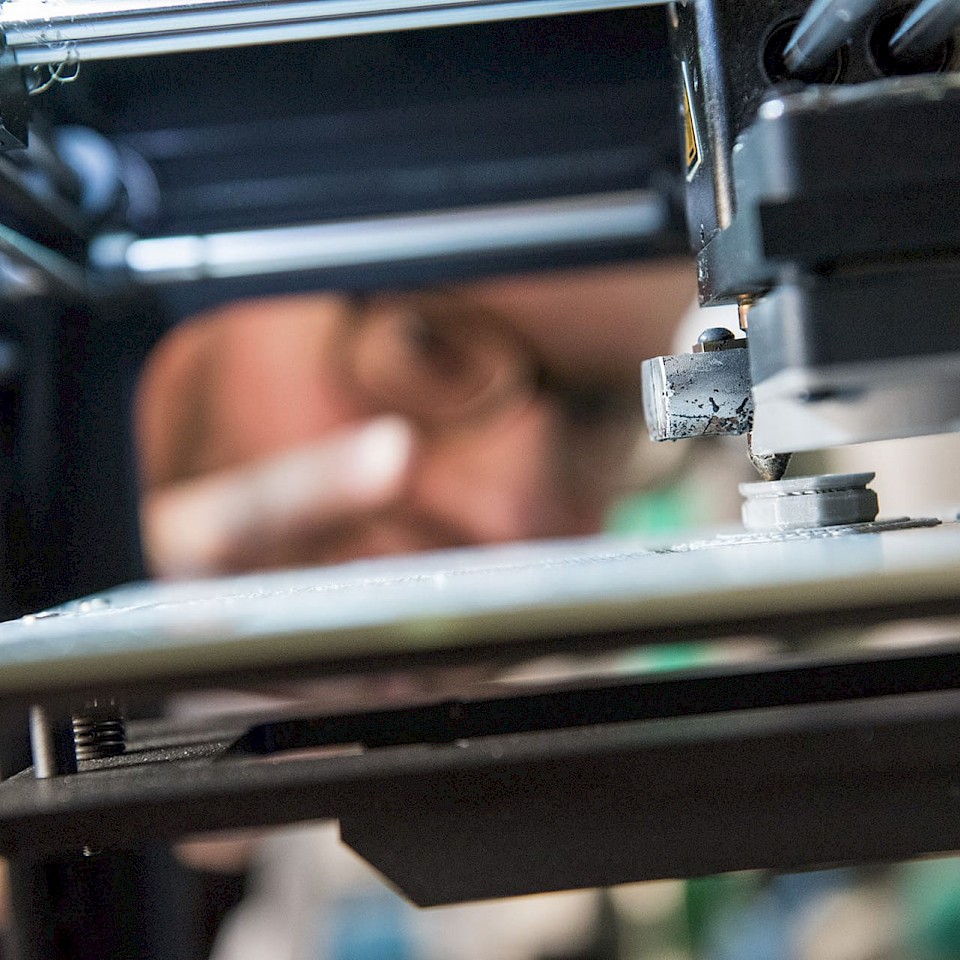
© Westphalia Data Lab
Project DeepEye: Protecting against age blindness with AI
Cooperation partner: Westphalia DataLab GmbH and Augenzentrum am St. Franziskus-Hospital
The DeepEye project revolutionises ophthalmology: It makes it possible to distinguish wet age-related macular degeneration (AMD), which frequently occurs in old age and can be treated with medication, from the non-treatable stage of early and intermediate AMD with high precision and to recommend reliable treatment decisions. In this way, ophthalmologists are relieved, wrong decisions are minimised and the necessarily long-lasting therapy is clearly supported by decision-making aids. As a result, ophthalmologists and patients benefit greatly from this project. Behind the success is the use of artificial intelligence.
Find out more about the innovation from Münsterland on this page.
Westphalia DataLab GmbH, Münster
The Westphalia DataLab (WDL) from Münster is a software development and consulting company specialising in data science with in-depth expertise in the areas of artificial intelligence and machine learning. In addition to its own Software-as-a-Service (SaaS) product solutions, such as a fully automated forecasting solution for future product sales to reduce inventory and personnel costs, WDL offers data science and AI consulting for companies in all industries. WDL serves a wide range of use cases, from the analysis of customer feedback to the prediction of machine failures, questions in the area of predictive quality or even the predictive treatment of eye diseases in medicine. At WDL, data projects become data products.
Eye Centre at the St. Franziskus Hospital, Münster
At the Eye Centre at St. Franziskus, more than 30 specialised doctors work on the treatment of a wide range of eye diseases. Among them are internationally recognised researchers who continuously develop the methods of ophthalmology.
Challenge: Age-related eye disease
The wet form of age-related macular degeneration (AMD) is an eye disease that occurs frequently in old age and affects more than 25 million people worldwide. It severely impairs the vision of those affected. The Eye Centre at the St. Franziskus Hospital in Münster is considered a renowned contact point for AMD sufferers and is constantly looking for ways to improve diagnosis and treatment procedures. Supported by the biotech and pharmaceutical company Novartis, the Westphalia DataLab investigated how Deep Learning (artificial intelligence) can be used to recognise a wet AMD disease in need of treatment and predict the need for therapy.
Solution approach: Use of artificial intelligence

© DeepEye
With the help of artificial intelligence, the Westphalia DataLab created various models around the diagnosis and treatment of AMD. The so-called Convolutional Neural Networks - a type of neural network frequently used in image recognition - were used. To train the neural networks, the research team used documentation of untreated and treated cases. This led to the development of algorithms that can differentiate with very high accuracy wet AMD requiring treatment from the preliminary stages not yet requiring treatment.
They were also able to distinguish between stabilised findings that needed to be controlled and renewed disease activity with a repeated need for treatment, even during the four-weekly follow-up that often lasts for years.
Success: Unique approach
The successfully completed proof of concept demonstrated that deep learning algorithms can be used beneficially in the context of diagnostics and therapy decisions for wet AMD. The DeepEye project serves as an ophthalmological decision support algorithm for individual treatment recommendations. A currently unique approach to assisting ophthalmologists in deciding whether or not an individual AMD needs to be treated or retreated.
Used as a diagnostic aid, the developed models have the potential to relieve medical staff in everyday clinical practice, to improve the quality of therapy through decision-making aids for the ophthalmologist in the field and to minimise wrong decisions. Ultimately, this supports the best possible individual therapy for the patient and creates the possibility of obtaining the best possible vision individually.
As a regional joint initiative, Enabling Networks Münsterland supports companies and universities in the Münsterland region in developing innovations, implementing them and finding the right partners for the project. In order to show how innovative and at the same time cooperative Münsterland already is, the project also went in search of innovative cooperation projects from the region. The results are presented on this page. The Enabling Networks Münsterland project is funded by the European Union and the NRW Ministry of Economics as part of the ERDF call "Regio.NRW".






